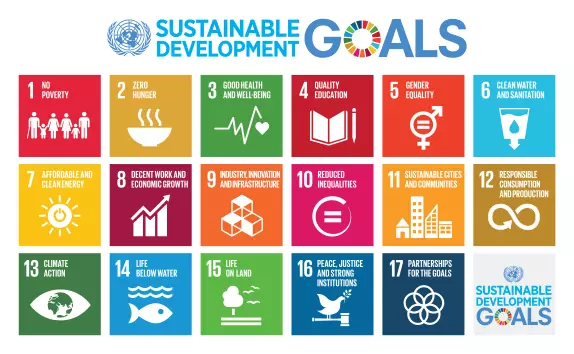Comments
- No comments found

Are you interested in living a more sustainable lifestyle?
Do you want to reduce your environmental impact and make a positive difference in the world? If so, you've come to the right place.
This article will provide you with the basics of sustainable living and offer tips on how to go green.
Sustainable living refers to a lifestyle that focuses on minimizing our negative impact on the environment while promoting social and economic well-being.
It involves making conscious decisions about how we consume resources, from energy and water to food and transportation.
By adopting sustainable practices, we can help preserve natural resources for future generations and reduce pollution, waste, and greenhouse gas emissions.
Whether you're just starting out or looking for new ways to live sustainably, this beginner's guide will give you the tools you need to make a difference.
Sustainability is all about living in a way that preserves the environment, economy, and society for future generations. It's a concept that's becoming increasingly important as we face issues like climate change, pollution, and resource depletion.
To understand sustainability, it's essential to look at the interconnectedness of these three areas.
Environmental sustainability refers to living in a way that doesn't harm the planet or use up its resources faster than they can be replenished. This includes reducing waste and pollution, using renewable energy sources like wind and solar power, and protecting biodiversity.
Economic sustainability involves creating systems that are financially stable over the long term while also supporting social well-being. This means taking into account factors like fair wages, responsible investments, and sustainable business practices.
Finally, social sustainability is about creating communities where everyone has access to basic needs like food, shelter, healthcare, and education. It also involves promoting equality and justice so that everyone has the opportunity to thrive.
By focusing on all three pillars of sustainability - environmental, economic, and social - we can create a better future for ourselves and for generations to come.
Having a clear understanding of the concept of sustainability is essential if you want to start living sustainably.
Sustainable living involves finding ways to meet our present needs without compromising the ability of future generations to meet their own needs.
The idea behind sustainable living is to ensure that we use resources responsibly, so they last for as long as possible.
One of the benefits of sustainable living is that it helps reduce your carbon footprint.
By making simple changes such as using energy-efficient light bulbs, reducing water usage, and recycling, you can significantly reduce your environmental impact.
Sustainable practices also help conserve natural resources such as clean air and water, which are crucial for maintaining a healthy planet.
Another benefit of sustainable living is that it can save you money in the long run.
For example, by using public transportation or biking instead of driving alone, you can save on gas and maintenance costs.
Additionally, by consuming less and reusing items instead of always buying new ones, you can save money while also reducing waste.
Adopting sustainable practices has numerous benefits for both individuals and the planet as a whole.
Reducing energy consumption is one of the easiest ways to go green. It's not just good for the environment; it's also good for your wallet! By reducing the amount of energy you consume, you'll be able to save money on your electricity bill and reduce your carbon footprint.
Here are some simple steps you can take to reduce your energy consumption:
Reducing your energy consumption doesn't have to mean sacrificing comfort or convenience. With these simple steps, you can easily make an impact on the environment while also saving money on your utility bills. So why not give it a try? Your wallet (and the planet) will thank you!
Conserving Water Resources: A Crucial Step in Sustainable Living
Water is a precious resource that we often take for granted. However, with the increasing water scarcity due to climate change and population growth, it's crucial to conserve water resources.
Conserving water not only helps the environment but also saves money on utility bills. One way to conserve water is by fixing leaks in faucets, pipes, and toilets. According to the Environmental Protection Agency (EPA), a leaky faucet can waste up to 3,000 gallons of water per year. By fixing leaks promptly, you can save hundreds of dollars on your utility bills and prevent water wastage.

Another way to conserve water is by taking shorter showers. The average shower uses around 2.5 gallons of water per minute, which means a ten-minute shower uses 25 gallons of water! By reducing your shower time by just two minutes, you can save up to 5 gallons of water each day or 1,825 gallons per year!
Eating sustainably means making conscious decisions about the food you consume.
One way to do this is by choosing local produce as it reduces the carbon footprint of transportation.
You could also opt for organic food, which supports farmers who use natural methods to grow their crops and raise livestock.
Another sustainable food choice is reducing your meat consumption.
Animal agriculture is one of the largest contributors to greenhouse gas emissions, and reducing meat intake can significantly reduce your environmental impact.
Try incorporating more plant-based meals into your diet or becoming a flexitarian by limiting meat consumption to a few times a week.
Lastly, reducing food waste is crucial in sustainable living.
Plan meals ahead and only buy what you need.
Use leftovers creatively and compost food scraps.
By doing so, you not only reduce environmental impact but also save money in the long run.
Making sustainable food choices may seem daunting at first, but taking small steps towards mindful eating habits can make a big difference in creating a more sustainable world for future generations.
Sustainable packaging refers to the use of materials and practices that minimize negative environmental impacts throughout the lifecycle of a product's packaging. It focuses on reducing waste, conserving resources, and promoting ecological responsibility.
Are you looking for ways to reduce your carbon footprint? One of the most significant contributors to greenhouse gas emissions is transportation.
Fortunately, there are eco-friendly transportation options available that can help you do your part in reducing air pollution and save money at the same time.
One option is biking or walking. Not only is this a great way to get some exercise, but it's also a fantastic way to reduce your carbon footprint. If you live in an urban area, consider joining a bike-sharing program or investing in a folding bike that can easily be taken on public transportation.
Another option is electric vehicles (EVs). EVs emit zero emissions and can significantly reduce your carbon footprint. While they may have a higher upfront cost, they save money on fuel costs in the long run. Plus, many countries offer tax incentives for purchasing EVs.

Public transportation is another eco-friendly option to consider. Buses, trains, and subways emit fewer pollutants than cars and can help reduce traffic congestion. Many cities have robust public transportation systems that are affordable and convenient for daily commutes.
By choosing eco-friendly transportation options, you can make a difference in reducing air pollution and saving money while doing your part in promoting sustainable living.
Now that we've covered eco-friendly transportation options, it's time to focus on reducing waste and recycling.
One of the easiest ways to reduce waste is by using reusable products instead of disposable ones. For example, using a reusable water bottle instead of buying plastic water bottles can significantly decrease the amount of waste you produce.
Another way to reduce waste is by composting food scraps and yard waste. Composting is a natural process where organic materials decompose into nutrient-rich soil. Not only does composting divert waste from landfills, but it also creates a valuable resource for gardening and landscaping.
When it comes to recycling, it's important to know what materials are accepted in your local recycling program. Commonly recycled materials include paper, cardboard, glass, metal, and certain plastics. Make sure to rinse out containers before placing them in the recycling bin and avoid putting non-recyclable items in the bin.
By implementing these simple practices into your daily routine, you can make a significant impact on reducing waste and promoting sustainability. Remember that even small actions can make a big difference in creating a more sustainable future for us all.
Living sustainably starts with making conscious choices each day. By making small adjustments to your daily habits, you can make a big impact on the environment. The first step is to assess your lifestyle and identify areas where you can reduce your carbon footprint.
Choose eco-friendly products: When shopping for groceries or household items, look for products that are made from sustainable materials and have minimal packaging. This will help reduce waste and promote sustainability.
Reduce energy consumption: Simple actions like turning off lights when leaving a room or unplugging electronics when not in use can significantly reduce energy consumption. You can also opt for energy-efficient appliances and light bulbs to further minimize your energy usage.
Incorporate sustainable transportation: Consider walking, biking, or using public transportation instead of driving alone. This not only reduces carbon emissions but also promotes a healthier lifestyle.
Incorporating sustainable practices into your daily life may seem daunting at first, but it's important to remember that every little action counts towards a more sustainable future. By taking small steps towards reducing your environmental impact, you are contributing to a healthier planet for generations to come.
So start today and make a difference!
Living sustainably is not only beneficial for the environment, but also for our health and well-being.
By understanding the concept of sustainability and making conscious choices in our daily lives, we can reduce our carbon footprint and contribute to a healthier planet.
It may seem overwhelming at first, but starting small with simple changes such as reducing energy consumption or choosing sustainable food options can make a big impact in the long run.
Let's work together to create a sustainable future for ourselves and generations to come.
Felix is the founder of Society of Speed, an automotive journal covering the unique lifestyle of supercar owners. Alongside automotive journalism, Felix recently graduated from university with a finance degree and enjoys helping students and other young founders grow their projects.
Leave your comments
Post comment as a guest